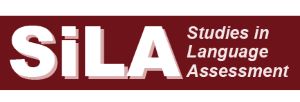Exploring shared and individual assessment of paired oral interactions
Pakize Uludag, Kim McDonough & Pavel Trofimovich, Concordia University
|
https://doi.org/10.58379/HOMQ5772
|
Volume 11, Issue 2, 2022
|
Abstract: Studies concerning the assessment of second language (L2) paired oral interaction to date have investigated interactional patterns that emerge from paired oral tests and identified the factors that create variability in an individual’s test scores. However, less work has addressed concerns about whether scores should be shared or individual when assessing L2 speakers’ oral interactions. Therefore, the present study compared shared and individual assessment of L2 English paired oral task performances. Paired oral interaction episodes were sampled from a larger corpus of university-level L2 speakers engaged in paired speaking tasks and were assessed by 60 raters who were randomly assigned to rate Speaker A, Speaker B, or both speakers. To avoid any possible rating effects due to rating stimuli, half the raters evaluated audio recordings while the other half assessed video recordings. The raters used an analytic rubric with four domains: discourse management, collaborative communication, content development, and language accuracy and complexity. Comparison of raters’ scores revealed that individual discourse management ratings were significantly higher than shared ratings for both members of the pair regardless of the rating modality (audio vs. video). Implications for assessing pair interactions are discussed.
Keywords: paired speaking tasks, language testing, individual and shared assessment
